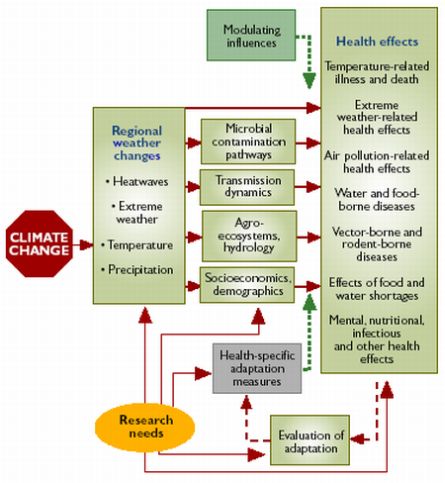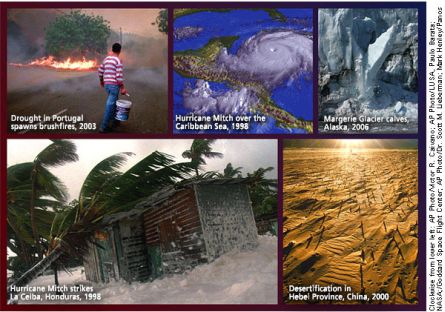Australian scientist Tony McMichael of the Australian National University (ANU) has been selected to study the impact of climate change on the human health particularly those living in rural areas and underprivileged to access high-end medical services. He is bestowed with a fellowship of $4 million spanning over the coming five years to carry on his research.
Climate change and rising global warming deeply affect the physical and mental health of human beings. Rising temperature and growing percentage of smoke and dust in the air puts the human health at great peril. The complex set of interlinkages between climate change and human health embrace temperature-related illness and death caused by sunstroke, the health shocks due to extreme weather events like drought and flood and air pollution causing spores and moulds in the body. To add them there are many other intricate health hazards like water-borne diseases, food and water shortages and vector-borne and rodent-borne diseases.
Rising global warming and climate change causes is a sure threat to human health. Intense temperatures variations can directly lead to the loss of life. Warm areas are vulnerable to several serious diseases. People with heart troubles are exposed to heat related causality because their cardiovascular system fails to keep the body cool during hot weather. People may fall prey to heat exhaustion and respiratory problems. Higher air temperatures also augment the concentration of ozone at earth level damaging lung tissue, and causing problems for people with asthma and lung diseases. Constant exposure to ozone also causes healthy individuals to feel chest pains, nausea, and pulmonary blocking.
Climate change and global warming helps in rise of infectious diseases like West Nile virus, Cholera and Lyme disease and helps infection carriers like mosquitoes, viruses, ticks, and mice to flourish. Polluted waters may lead to deadly algal bloom. Climate change impacts on human health are also unevenly distributed throughout the world. Small Island States and coastal nations like Mauritius and Bangladesh are the most vulnerable. A study conducted by the WHO, shows that most of the nations are not prepared for impending climate change impacts on human health.
Image1
Image2
Via: ABC





